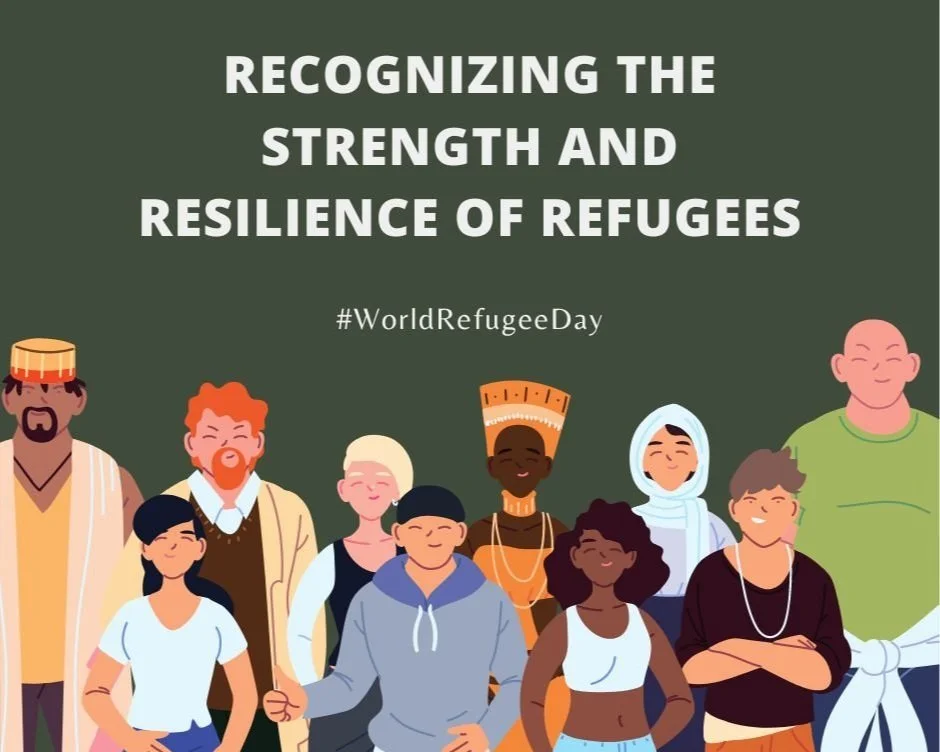London Leads in Refugee Welcome: A Beacon of Hope on World Refugee Day
June 20 marked the celebration of World Refugee Day, a United Nations-sanctioned day meant to honour refugees around the world.
To mark the day, the London and Middlesex Local Immigration Partnership’s fact-sharing group decided to explore London’s humanitarian efforts to support refugees around the world.
First held in 2001, World Refugee Day is meant to highlight and celebrate the strength and courage of people who have been forced to flee their homes to escape persecution or conflict but continue to work hard to rebuild their lives and create a better future for themselves, their families and their new communities.
“World Refugee Day shines a light on the rights, needs and dreams of refugees, helping to mobilize political will and resources so refugees can not only survive but also thrive,” the U.N. says on its website.
“While it is important to protect and improve the lives of refugees every single day, international days like World Refugee Day help to focus global attention on the plight of those fleeing conflict or persecution.”
Canada has a strong history of welcoming refugees, who have in turn become a critical part of the fabric of the country, helping build the nation it is today.
That history can be traced back to the late 1700s, when Canada become home to Black families escaping slavery in the United States, many of whom settled in the London area and the wider Southwestern Ontario region.
It continued throughout the 20th century, when Canada opened its doors to refugees fleeing the destruction caused by the Second World War and Chileans fleeing political prosecution, among other military and political conflicts.
Most recently, Canada has also launched humanitarian efforts to support thousands of people escaping war in Syria, Afghanistan and Ukraine.
In recent years, London has played a pivotal role in supporting refugees, punching way above its weight when it comes to the number of people it has helped resettled, Immigration, Refugees and Citizenship Canada data shows.
Between 2015 and 2022, for instance, about 7,200 refugees have settled in London.
Only Toronto, Ottawa and Mississauga have received more refugees in Ontario over the same period, beating larger urban centres such as Kitchener and Hamilton.
Nationally, London also ranks ninth overall in the same category.
*Values are rounded to the closest multiple of 5 to prevent individuals from being identified. Source: IRCC, April 30, 2023.
“I think (the rankings) say two things: One is that we're a welcoming city, and we've always done our best to provide a space for people who are refugees coming from all over the world,” London Mayor Josh Morgan said.
“But also that we have this amazing diversity in our community where we can support the various refugees that we’ve taken in over the years because we have strong local communities that can help make London home and make (refugees) feel like they belong,” Morgan added.
“It’s a lot easier to go to a place where there's people who can help you accommodate and figure out how to live life in a new place and a new in a new country.”
*Values are rounded to the closest multiple of 5 to prevent individuals from being identified
Source: IRCC RD Permanent Residents, April 30, 2023 Data
IRCC data also support the notion of London’s multiculturalism.
Between 2015 and 2022, London welcomed refugees from 21 different countries. The most common country of citizenship is Syria, with more than 3,700 people from this country resettling in London during that time. That is followed by about 1,030 refugees from Iraq and 630 Afghans.
Morgan said those refugees – and all newcomers choosing London as their home – are critical to the economic future of the city amid low birth rates and existing labour shortages.
“When you think about the lack of domestic population growth that we've had over a number of years, immigration and newcomers are a way to grow the country (and) support the economy,” he said.
“When you have labour shortages that you can't fill, and yet there's talented, skilled labour out there around the world, welcoming some of that (talent) to Canada helps us build the kind of country that we're trying to build.”


